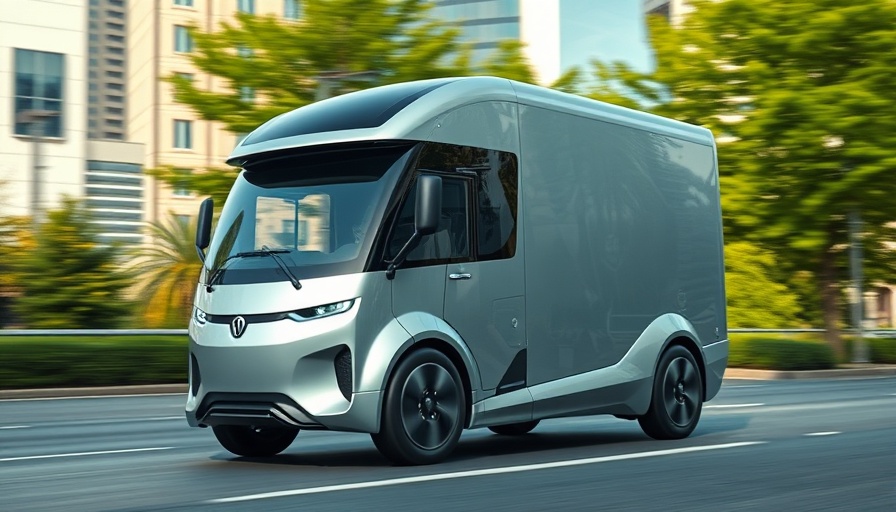
The Future of Logistics: Embracing Zero Emissions
Toyota Motor Europe is stepping into the future with its latest initiative that highlights a bold stance against carbon emissions in logistics. With the introduction of hydrogen fuel cell trucks into its logistics routes from the European Parts Centre in Diest, Belgium, Toyota is setting a benchmark for sustainability. These trucks are not just any vehicles; they symbolize a significant leap towards zero tailpipe emissions, aligning with the automotive giant's aspirations to combat climate change while maintaining operational efficiency.
How Fuel Cell Technology is Changing the Game
The partnership with VDL Groep has led to the deployment of four fuel cell-powered trucks that are being carefully evaluated in real-time logistics operations across Belgium, France, Germany, and the Netherlands. These trucks are designed to match the performance of conventional diesel trucks—capable of traveling up to 400 km on a single hydrogen refueling—while emitting only water vapor. This showcases a practical implementation of hydrogen as a viable alternative fuel source, which not only enhances Toyota's operational capabilities but also stimulates the hydrogen economy in Europe.
Broader Implications: Carbon Neutrality Goals
This move not only serves Toyota's immediate logistical needs but also resonates with its long-term vision of achieving carbon-neutral logistics operations by 2040. It’s a statement of intent that reflects a growing trend in the automotive industry towards sustainable practices. The company’s collaboration with logistics providers such as Vos Transport Group and CEVA Logistics is essential for refining the technology and gathering insights that will inform future iterations of these hydrogen trucks. As the demand for sustainable logistics grows, Toyota's initiative is an encouraging sign of progress.
Real-World Applications: Lessons Learned
The introduction of fuel cell trucks represents more than just a technological advancement; it’s about learning and adapting. Continuous evaluation allows Toyota and its partners to identify challenges and opportunities associated with hydrogen logistics. This kind of innovative thinking can also inspire auto sales professionals to understand the significance of sustainability in their pitch. Sales training that incorporates the advantages of green technologies could give dealerships an edge in a competitive market, appealing to an increasingly eco-conscious consumer base.
Practical Insights for Auto Sales Professionals
For auto sales professionals looking to stay ahead in an evolving market, understanding the implications of such innovations can be a valuable asset. Emphasizing the benefits of eco-friendly vehicles can resonate well with customers who prioritize sustainability. Training modules that focus on the efficiencies of hydrogen fuel cell vehicles can equip sales teams with the knowledge they need to engage customers effectively. Dealers who adapt to these trends will have a distinct advantage and can capitalize on the growing market for green vehicles.
Moreover, sharing real-world success stories about Toyota’s operations can bolster the credibility of sales strategies, reinforcing the importance of practical insights in automobile dealership training. As the market shifts, embracing the narrative of zero tailpipe emissions will likely become an essential component of sales pitches.
Conclusion: Moving Towards a Greener Future
With initiatives like Toyota’s fuel cell logistics fleet, the automotive industry is progressively transitioning towards more sustainable practices. This shift not only benefits the environment but also provides compelling narratives for sales professionals. As hydrogen technology becomes more prevalent, dealerships must adapt their training to align with these evolving trends. By doing so, they can ensure that their sales teams not only sell vehicles but also advocate for a greener future.
 Add Row
Add Row  Add
Add 




Write A Comment